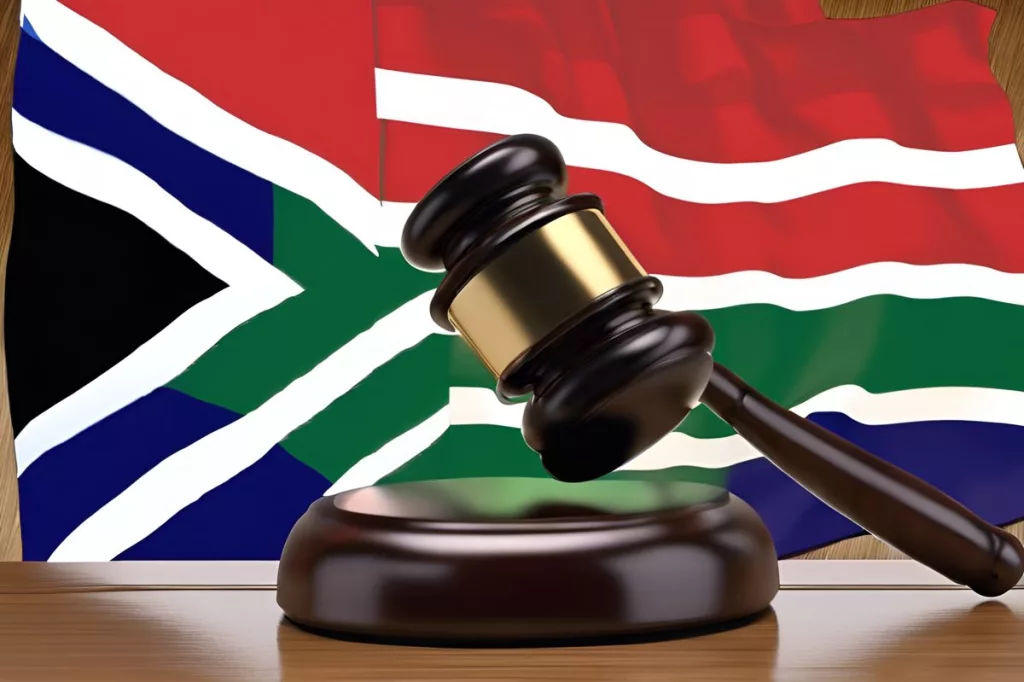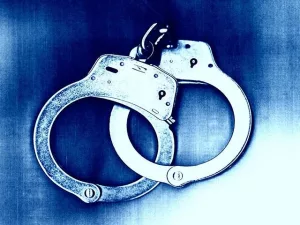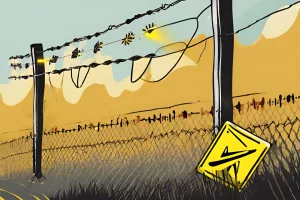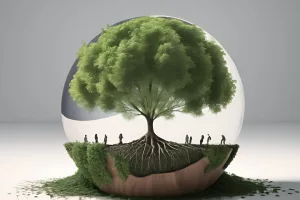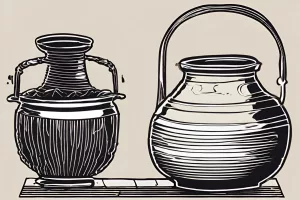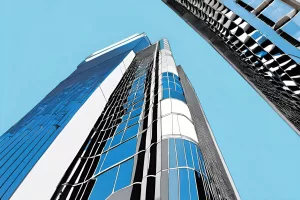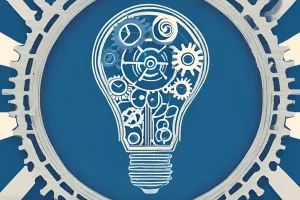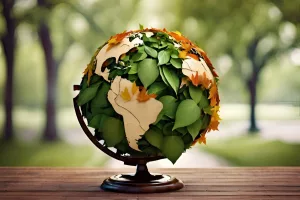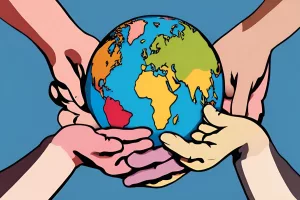This week, South Africa’s National Council of Provinces (NCOP) is gearing up for a packed schedule of legislative activities, including policy debates, budget votes, and committee meetings on topics ranging from economic development to agriculture. The week will conclude with a constituency period, during which members of parliament will engage with the public. Additionally, a joint committee of Parliament will review the Constitution, highlighting the country’s commitment to continuous improvement and evolution in legislation.
South African authorities have launched a major crackdown on illegal mining with the “Vala Umgodi” operation, resulting in the arrest of 22 individuals suspected of engaging in unlicensed mining activities and breaking immigration regulations. The operation involves a multidisciplinary team composed of various entities, including the South African National Defence Force, and highlights South Africa’s continued efforts to combat illegal mining. The operation also included confiscation of mining tools and maintaining law and order during major events in the Kimberley region.
The Western Cape in South Africa is home to two World Heritage Sites, the Diepkloof Rock Shelter and the Pinnacle Point Site Complex, crucial in understanding modern human evolution. These sites offer a glimpse into our shared past, representing our collective historical memory and providing fundamental insights into the emergence of modern human behavior. The preservation of these sites is a commitment to safeguarding our shared ancestry and preserving our collective historical memory.
Citrusdal, a beautiful town in South Africa’s Western Cape, has been hit by severe flooding, blocking access and causing significant infrastructure damage. However, the community and government are working tirelessly to restore access and mitigate future risks. The Western Cape Department of Infrastructure is implementing an extensive repair plan, with some routes already reopened. The community is urged to exercise patience and caution while progress is made, and the restoration of Citrusdal serves as a testament to the community’s resilience.
South Africa’s Bureau of Standards has updated regulations for electric fences, with new rules requiring the use of premiumgrade materials, regular inspection schedules and enhanced testing methods after installation. The SANS 10222–3: 2023 Edition 5.1 requirements also include revised standards for warning sign placement and joint installation. Failure to comply with the standards can result in the denial of insurance claims, while consumers can request the Electric Fence System Installer number from installers and report improper conduct to the Department of Labour.
Deputy President Shipokosa Paulus Mashatile emphasized the need for scientific and evidencesupported strategies to handle socioeconomic complexities, identified key issues integral to the nation’s developmental dialogue, including countering the impacts of climate change, capitalizing on the advantages of the African Continental Free Trade Area, and supporting peace initiatives on the continent. The conference reflected on the struggles, achievements, and aspirations of a nation striving to uphold principles of justice, equality, and social transformation.
Discover the enchanting city of George, situated on South Africa’s picturesque Garden Route. With its lush golf greens and intriguing history found in the George Museum, George offers a blend of historical enchantment and natural wonder. Explore the Outeniqua Transport Museum, Garden Route Botanical Garden, and Outeniqua Nature Reserve for a journey through time, flourishing flora, and wildlife preservation. Enjoy coastal charm at Victoria Bay, play a round of golf at the George Golf Course, and blend adventure and tranquility at Redberry Farm and the Outeniqua Pass. Hike George Peak, visit the Outeniqua Family Market, and indulge in creativity and cuisine at the Clay Cafe. Don’t miss out on this unique destination accessible via the N2 highway from Cape Town, Knysna, or Oudtshoorn.
A substitute history teacher at Table View High School in Cape Town, South Africa has caused controversy after allegedly using racial slurs during a session with students. The use of the ‘Kword’ reportedly provoked outrage among parents and students, with calls for the teacher’s dismissal. The school has apologized and pledged to scrutinize the teacher’s instruction more closely in response to the incident, which is being examined by the Western Cape Education Department’s Labour Relations Directorate. A human rights complaint has also been lodged.
South Africa has secured two positions on TIME Magazine’s World’s Greatest Places List, which features 100 extraordinary sites worldwide. The Grootbos Florilegium in Gansbaai is a museum celebrating South African flora and pollinators through a collection of close to 250 botanical representations and depictions of insects and butterflies. Meanwhile, Johannesburg’s Magugu House showcases the creative prowess of acclaimed fashion designer Thebe Magugu, functioning as both a retail outlet and exhibition space. These two establishments offer unique glimpses into South African culture, society, and aesthetics, affirming the country’s diversity and everevolving terrain.
South Africa has introduced a new ‘dualfund’ retirement system, with contributions split into a savings fund and a retirement fund, giving members a financial buffer during hardships and ensuring assets for postretirement life remain untouched until required. A third of contributions will form the savings component, while the remaining twothirds will be allocated to the retirement segment and can only be accessed upon retirement. Funds accrued prior to September 2024 will continue to be protected. However, there are concerns from experts that people could end up dipping into their savings fund too frequently and damaging their longterm financial safety.
South Africa’s rental property market is flourishing due to high demand and a shortage of available properties. Economic instability and high interest rates have led more people to favor renting over homeownership, with the Western Cape and Gauteng regions being the most attractive for landlords and investors. While there are challenges, such as financing and potential rent defaults, the rental market is expected to continue thriving beyond 2024, offering lucrative opportunities for investors. Despite the obstacles, the rental property market in South Africa remains a promising field for expansion and investment.
The Department of Higher Education and Training (DHET) in South Africa has demonstrated financial responsibility by returning R580 million to the National Treasury due to the impact of the Covid pandemic, while still achieving 99% of its performance objectives. Under the leadership of Minister Nobuhle Nkabane, the DHET is committed to developing a qualified workforce that contributes to economic expansion through its higher learning institutions. The DHET’s initiatives include resolving legal litigation, prioritizing response to genderbased violence, investing in research and development, and expanding the postsecondary education and training system.
Dr. Nobuhle Nkabane, South Africa’s Minister of Higher Education and Training, emphasizes the department’s role in shaping the country’s future by nurturing a qualified workforce for economic growth. She discusses the budget and performance of the department, as well as ongoing legal conflicts and the government’s commitment to combat GenderBased Violence and Femicide on campuses. Dr. Nkabane also highlights the government’s dedication to expanding access to postschool education and training through diversifying public universities and boosting enrollment in TVET and Community Education and Training colleges, and investing in infrastructure.
Pioneering a Comprehensive Approach to Climate Change: South Africa Leads the Way with Groundbreaking Legislation
South Africa has taken a bold step towards tackling climate change with the recent signing of the Climate Change Bill into law by President Cyril Ramaphosa. The law provides a structured approach to South Africa’s response to climate change, addressing urgent issues such as governance, climate change mitigation strategies, and the potentially catastrophic effects on agriculture and food supplies. This legislation sets a precedent for South Africa’s regional partners and the international community, highlighting the importance of collective action in the face of a global environmental crisis.
The ocean around Blouberg Beach in South Africa has undergone a strange transformation in color, triggering a range of theories and discussions. Some blame pollution, while others suggest natural phenomena, such as sediment mixing or freshwater interacting with saltwater. Despite the ongoing mystery, the situation highlights the need to understand the interplay between human actions and nature’s reactions to preserve our ecosystems. The power of shared curiosity and the role of social media in generating crucial dialogues have also been emphasized.
The Presidency plays a crucial role in South Africa’s leadership, implementing evidencebased decisions and achieving government priorities. Despite challenges, the presidency is committed to accelerating the country’s growth through strategic collaborations. South Africa remains prominent in the global arena thanks to the leadership and spirit of Nelson Mandela’s great nation. Covid19 impacted South Africa’s economy, but the government’s strategic initiatives, including the Economic Reconstruction and Recovery Plan, led to employment figures exceeding prepandemic levels. The Presidency is dedicated to eliminating poverty, unemployment, and inequality through initiatives like the Presidential Employment Stimulus and the Presidential Youth Employment Intervention.

